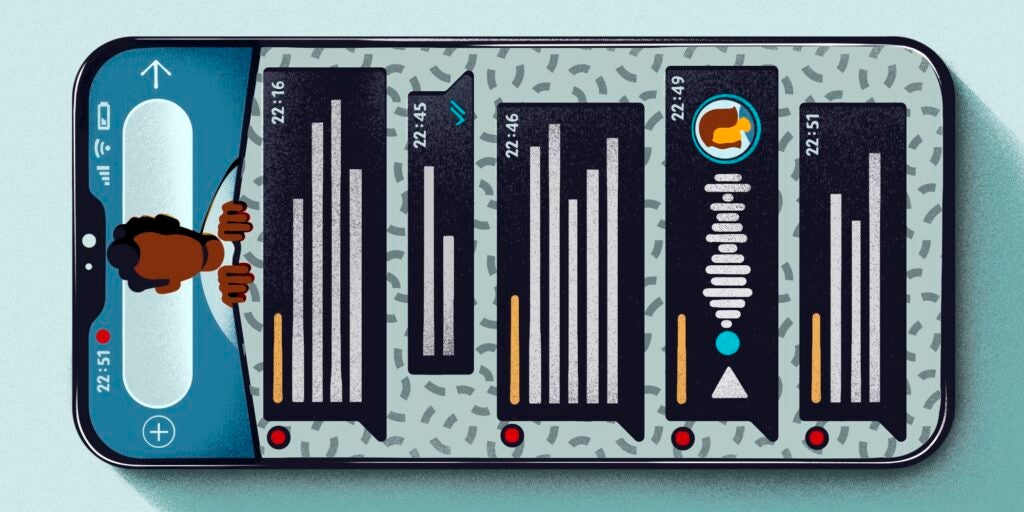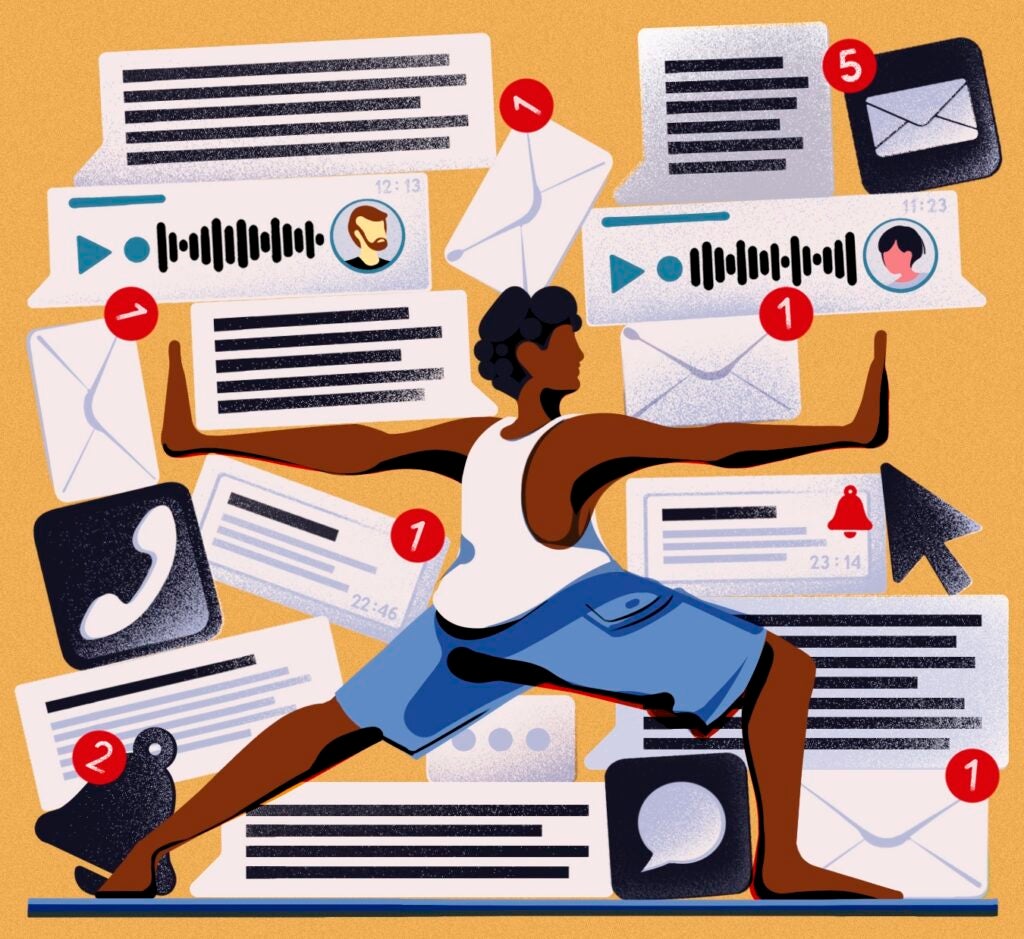Experts: Advice from One Hoya to Another
Sharing knowledge is an integral part of both the academic experience and the journeys of personal growth that define our lives. The Hilltop is home to an incredibly diverse community of doers and thinkers, whose experiences become invaluable expertise when shared. We took a stroll around campus and spoke with two members of the Georgetown community to ask for their best advice on how to live.
Sara Jane Ho (C’07): Set Digital Boundaries

Illustration by Adrià Voltà.
Much of etiquette has to do with setting and respecting boundaries, and digital boundary setting begins with physical boundaries. If you’re in the presence of someone with a heartbeat, prioritize their feelings. There’s nothing more annoying or potentially hurtful than trying to have a face-to-face conversation with someone who is focused on their screen or constantly checking to see if they have any messages. (One of the most common deal-breakers on first dates is someone continually checking their phone.) If you’re expecting an important call or message, tell the person you’re with in advance and apologize for the possible interruption.
Next are the boundaries we set with ourselves and our devices. Almost all of us are digital addicts to some degree. Our brains need the dopamine hit we get from checking our phones, and they are going to manipulate our behavior to get it. Still, pride and common sense must prevail to some degree. Repeat after me: mute, unfollow, unplug.
Finally, there are boundaries we set with others online. Just because we are technically available 24 hours a day doesn’t mean we should be. Most relationships will not benefit from that kind of unlimited access. But people won’t know what our limits are unless we communicate them, either outright or in a more subtle way. Managing expectations pertains just as much or more to life online as to IRL. Whether we’re talking about friends, lovers, colleagues, or family, decide early in the relationship when and how quickly you want or need to reply. People become conditioned as to what to expect. Don’t respond late at night, for example, if you don’t want to convey availability at that hour. Boundaries can change, but they need to remain comfortable for both sides.
Sara Jane Ho (C’07) is an internationally-renowned etiquette expert whose approach to comportment centers on self-improvement. This advice is excerpted from her new book, Mind Your Manners: How to Be Your Best Self in Any Situation, was published this year following the success of her Emmy-nominated Netflix show of the same name.
Andrea Bonior: A Focus on Health
Prioritize Sleep. Many of the daily practices that are most helpful for reducing stress are things that we already know we should do, but it’s a matter of starting small to truly prioritize them rather than feeling guilty that we ‘should’ do something and aren’t. If we could just get eight minutes more of sleep per night, that would add up to nearly an extra hour of sleep a week. And sleep deprivation — along with poor quality sleep — is one of the most common contributors to anxiety, and it lowers our resilience to stress.

Illustration by Adrià Voltà.
Start Small. We all likely know that physical activity is good for a mental and physical health, but we often think that requires a big production of going to the gym, when in reality if we were to dance to our favorite songs and get our heart rate up for just 10 minutes regularly, that can grow into a practice that makes a meaningful difference in your mood. I truly believe it’s very important to start with just a few minutes of something that you can do differently, building consistency slowly. Tie the new behavior to something that you do anyway. For instance, I’ve often seen people better able to incorporate mindfulness exercises or meditations when they center them around brushing their teeth because they are used to brushing their teeth regularly and reliably. So, the new habit sticks better when it’s paired to something established.
Label Your Thoughts. When stress feels really overwhelming, it’s often helpful to use mindfulness techniques to make sure your anxious thoughts aren’t becoming more sticky then they need to be. The heart of mindfulness is being gentle and curious as an observer of your thoughts and physical sensations, rather than beating yourself up further about your thoughts, or giving your anxious thoughts more power because you’re so bothered by them. It’s often helpful to label your thoughts as thoughts, which gives you some distance from them and reduces their power, like “I’m having a thought that I can’t handle this, but I know part of that is my anxiety distorting the situation,” rather than “I can’t handle this!” Zooming out to the big picture and reminding yourself of your values can be helpful, because it can remind you of what really matters to you, and how in the big picture of your life some of our biggest stressors are actually growth opportunities rather than fully “bad” events.
Connect With Friends. People with whom you feel trust and connection and who appreciate you for who you are are some of the biggest stress relievers that there are. And though the pressure as a busy college student to socialize can feel overwhelming, prioritizing quality time with people whose company brings you joy can help make tough moments easier.
Andrea Bonior is a mental health expert and teaching professor in the Department of Psychology. Bonior is a licensed clinical psychologist and the author of the best-selling book Detox Your Thoughts. She hosted the mental health talk and advice podcast Baggage Check, based on the mental health brand she built at The Washington Post. On campus, Bonior leads The Connection Project: Hoyas Connected, a program created at the University of Virginia to help increase a sense of belonging and community among new students.
